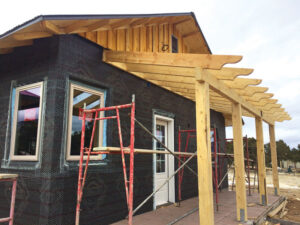Desert Cabal: A New Season in the Wilderness
By Amy Irvine
Torrey House Press & Back of Beyond Books
ISBN: 978-1-937226-97-8
$11.95; 89pp.
Reviewed by Eduardo Rey Brummel
Last year, a 50th anniversary edition of Edward Abbey’s “Desert Solitaire” was planned, with Amy Irvine providing its introduction. Irvine is the author of 2008’s, “Trespass: Living at the Edge of the Promised Land,” and winner of numerous awards, including: Orion Book Award and Colorado Book Award. When Irvine began writing her introduction, the writing – not at all unlike its writer – refused to be corralled and contained. What resulted instead was, “Desert Cabal,” her love letter to Abbey and “Desert Solitaire.”
Visiting Abbey’s gravesite – literarily speaking, not literally – Irvine gets right to the task at hand. “Hey Mr. Abbey, can you hear me down there? … We should talk.” After fifty years, “things are changing in ways even your prescient, nimble mind could not have imagined.” Many of these changes are because:
“you, Mr. Abbey may have developed whole fleets – generations’ worth – of desert defenders. But now they’re out there en masse, bumping into one another on the very ground on which you taught them to go lightly and alone. They are as much the problem as they are the solution, and it’s hard to know how we don’t divvy that down the middle, into us and them, right and wrong.”
Irvine promises to hold herself in check, but, “The questions, the concerns – they threaten to rush from my body like a river freed from a blown-up dam.”
Irvine maintains her conversation with “Mr. Abbey” for the entire course of the book. Topics of discussion include solitude, horses, the status and roles of women and non-whites, how one might come to possess a landscape, and whether that’s even possible.
Irvine doesn’t let herself off the hook for her sins, either. For instance, she admits to scarring numerous BLM rock faces in order to place bolts and anchors; and badly misbehaving en route to her current fourth husband – only one shy of Abbey’s own five spouses. But because “Desert Solitaire” and Edward Abbey are considered sacrosanct by many, many people, Irvine has received a tsunami of blow-back for this book.
I’m ambivalent about what could be a flaw with “Desert Cabal.” There are places where Irvine’s writing isn’t as polished and smooth as is typical for her. However, as it turns out, many of these same passages resonate and zing due precisely to their roughness and lack of polish. Anyone who’s read Irvine’s works knows she is a fiery and passionate writer.
The ease one might have reading this book belies its depth and breadth of thought and perception. “Desert Cabal” contains some of Irvine’s most brilliant and personal writing. It doesn’t just reward additional readings, it requires them. Fortunately, since “Desert Cabal” is an enjoyable and engaging read.
Blake Spalding and Regina Lopez-Whiteskunk provide, respectively, a Foreword and Afterword. These two bookends ground “Desert Cabal” in both the history of Utah public lands and their unfurling future. They are essential parts of the whole “Cabal.”
Eduardo Rey Brummel is thankful for the increasing role Torrey House Press is playing in the literary landscape, and in his life.

